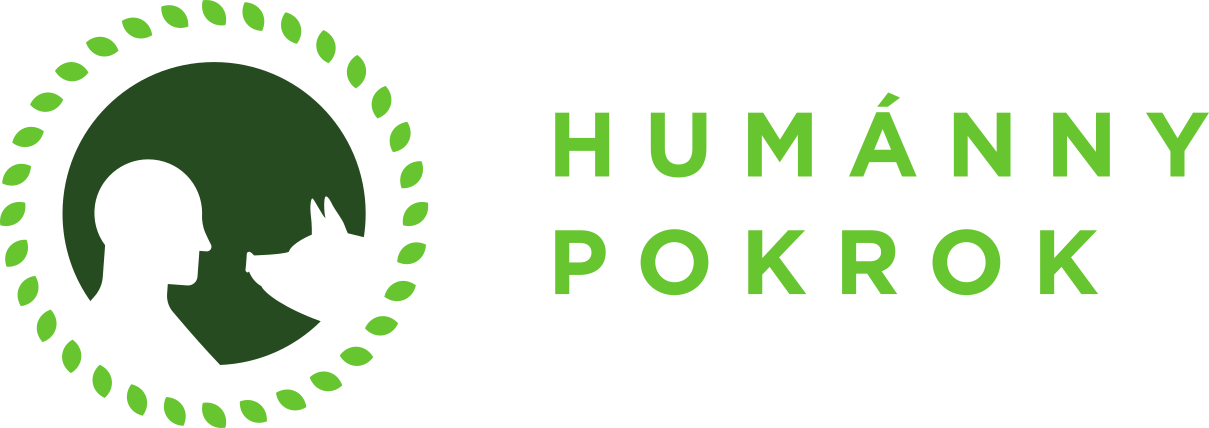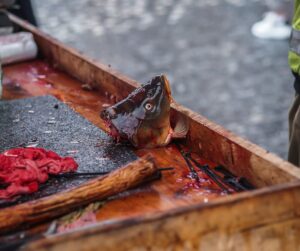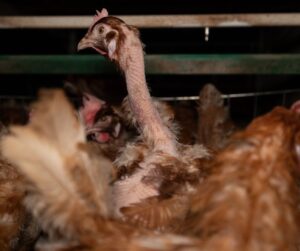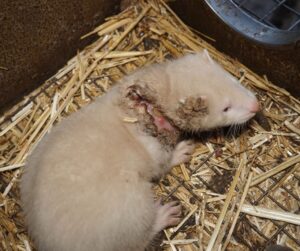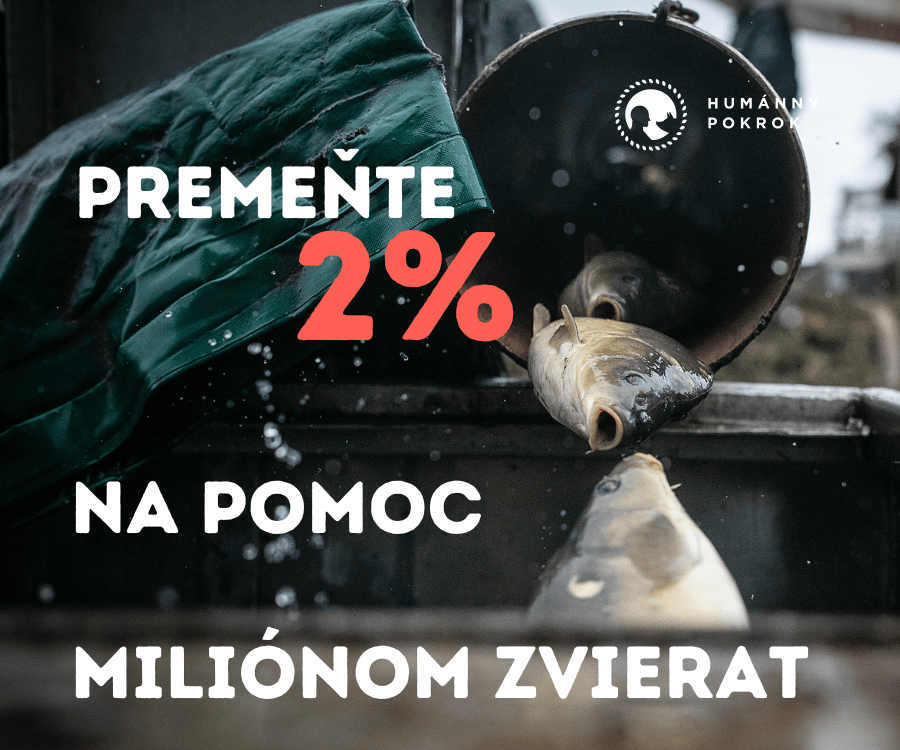Today the Slovak National council has approved the fur farming ban. Slovakia will become the 14th European country to ban fur farming. The ban goes into effect in 2021 with phasing-out period for existing farms set until 2025.
17.10.2019 in Bratislava: The Slovak National council has approved the fur farming ban after only 7 months of campaign led by the NGO Humánny pokrok. The nonprofit has published investigation footage from a mink farm in northern Slovakia, which has triggered public outrage. In the outcome, more than 76,000 people signed the petition demanding fur farming ban in Slovakia. The response to the campaign came from MP Eva Antošová (Slovak national party) who submitted the ban proposal in September. Proposal was passed by 107 votes from all political parties and will come into effect in 2021 with a phase-out period for existing farms until 2025. This will affect one mink farm with capacity of 5000 minks and 8 rabbit fur farms currently operating in the country. No other fur farms would be permitted to open after 2021. Slovakia will therefore become the 14th European country to ban fur farming.
The fur farming ban campaign was launched in March with investigation footage showing horrible conditions of minks at a fur farm in northern Slovakia. Animals were packed in small filthy cages, with open untended wounds and showing signs of cannibalism and stereotypic behaviour. The public responded with outrage generating more than 76,000 petition signatures and the campaign became the second largest online petition in the history of Slovakia, with more than 1.4% of population supporting it. It also brought responses from both presidential candidates in the last week before elections during the spring presidential elections campaign, including the support from the current president of Slovakia – Zuzana Čaputová – who will now need to sign the ban in order to conclude the legislation process.
Activists from Humánny pokrok welcome the ban: “It is a big victory for animals and a sign, that Slovak society is progressing and tens of thousands of people are ready to stand up for the animals and their protection. Slovakia has made a big step forward today and we hope that this is the beginning of a new brighter future for animals in our country”, said Martin Smrek from Humánny pokrok.
Slovak public was also strongly against fur farming in the past and polls have shown that 68% of Slovaks disagree with fur farming. However, the politicians were refusing to push the issue forwards until only recently. “Making the protection of animals into a political issue in Slovakia is a good sign and gives us hope, that we will be able to deal with other animal cruelty issues as well” added Frederika Fratričová, also from Humánny pokrok.
###
HUMÁNNY POKROK
Humánny pokrok (Humane progress) is an animal advocacy NGO from Slovakia working on enhancing humanity and sustainability. We are the voice of the animals, we promote sustainable solutions that can nurture the planet. Humánny pokrok was established in order to bring strong voice for the animals in Slovakia, which will be in line with sustainability. The organization is member of global coalition to free hens, Open Wing Alliance, and Fur Free Alliance, international coalition fighting for the end of fur farming.
Investigation footage from the fur farm in Príbovce, Slovakia free for use: https://drive.google.com/open?id=1a5JucCeJQaJ93LfAIBIks7leYYoXWS6v
Contact:
Martin Smrek – campaign coordinator
+421 948 315 807
martin.smrek@humannypokrok.sk
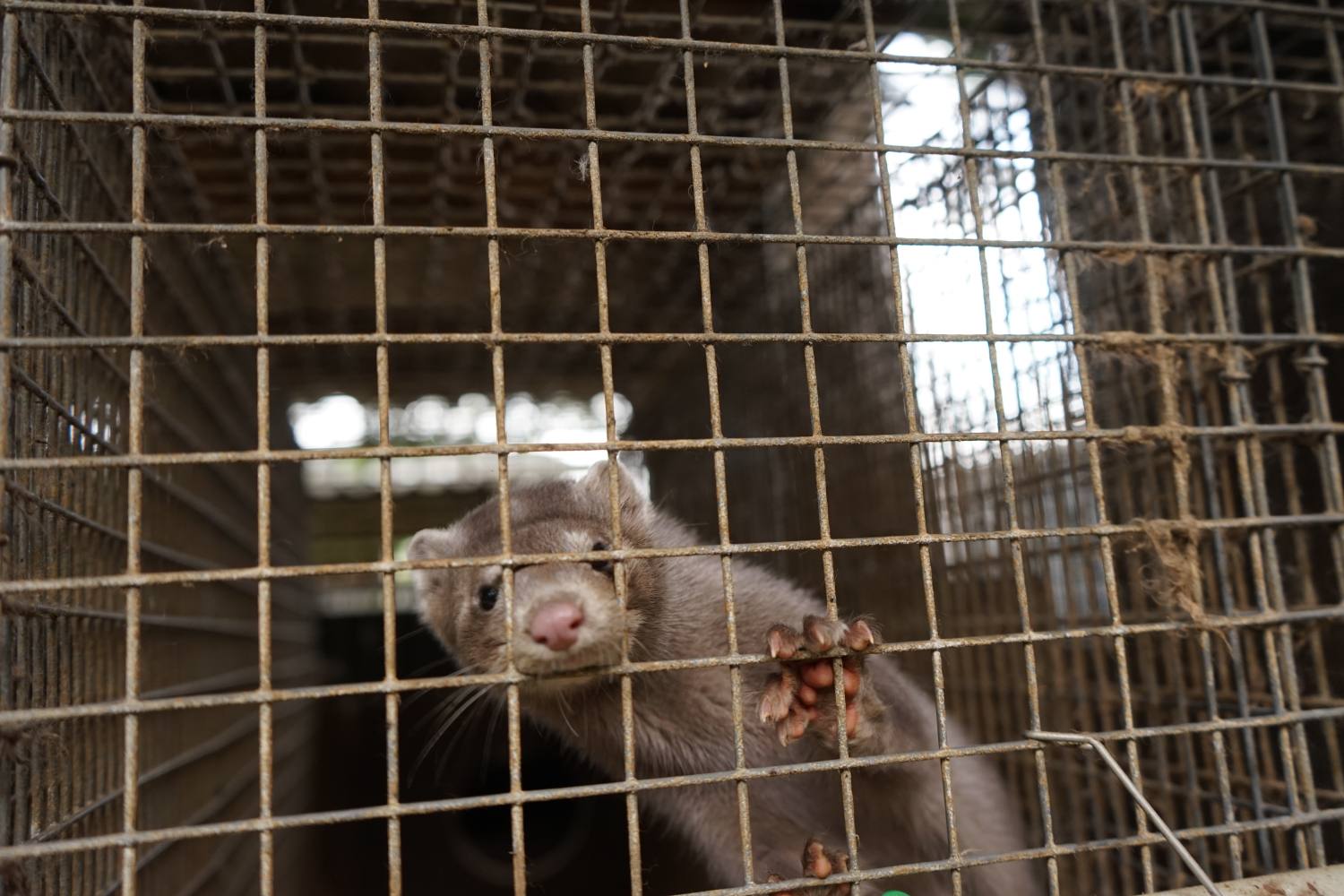
Mink at the fur farm in Príbovce, Slovakia. PHOTO: Humánny pokrok
